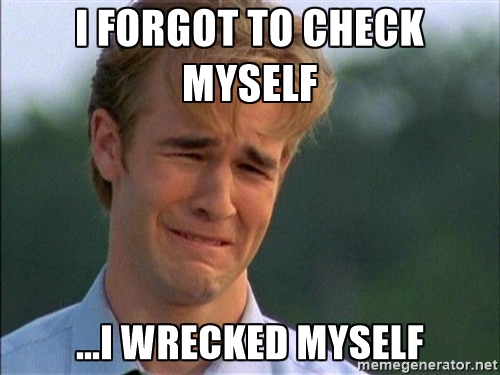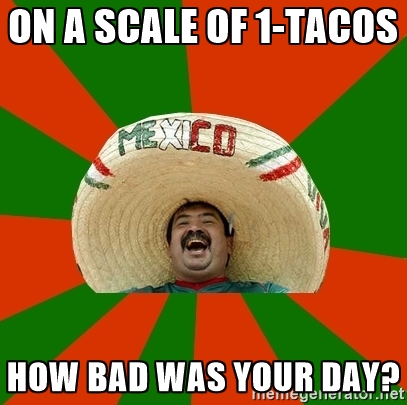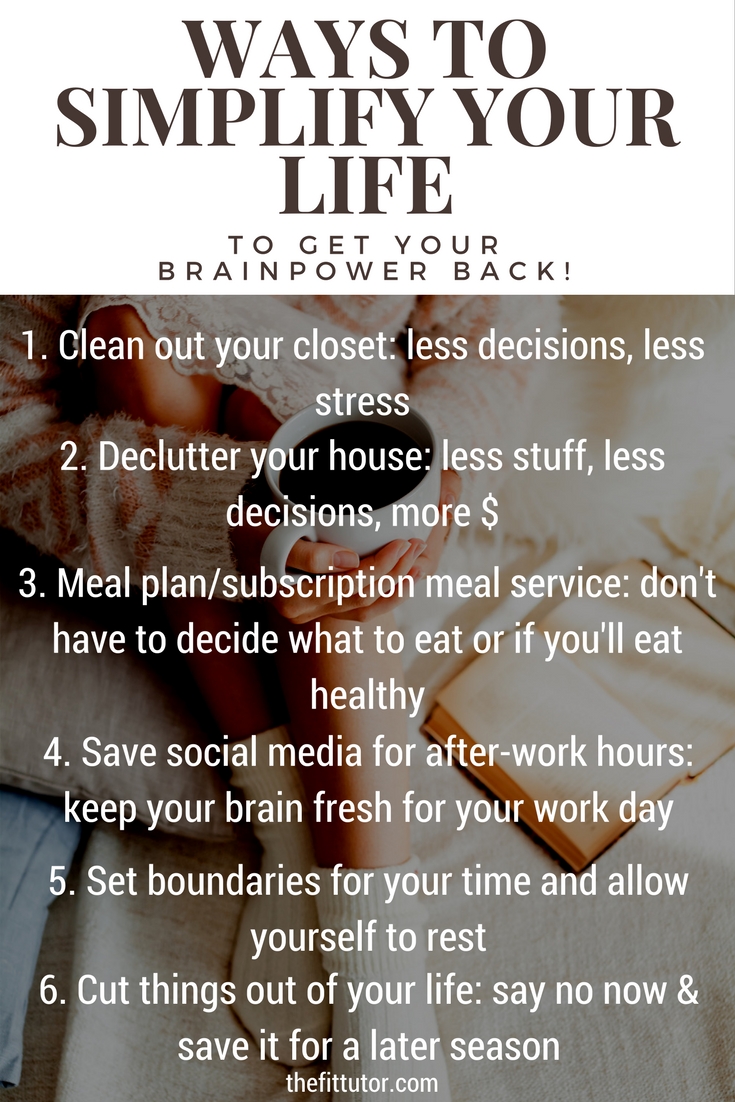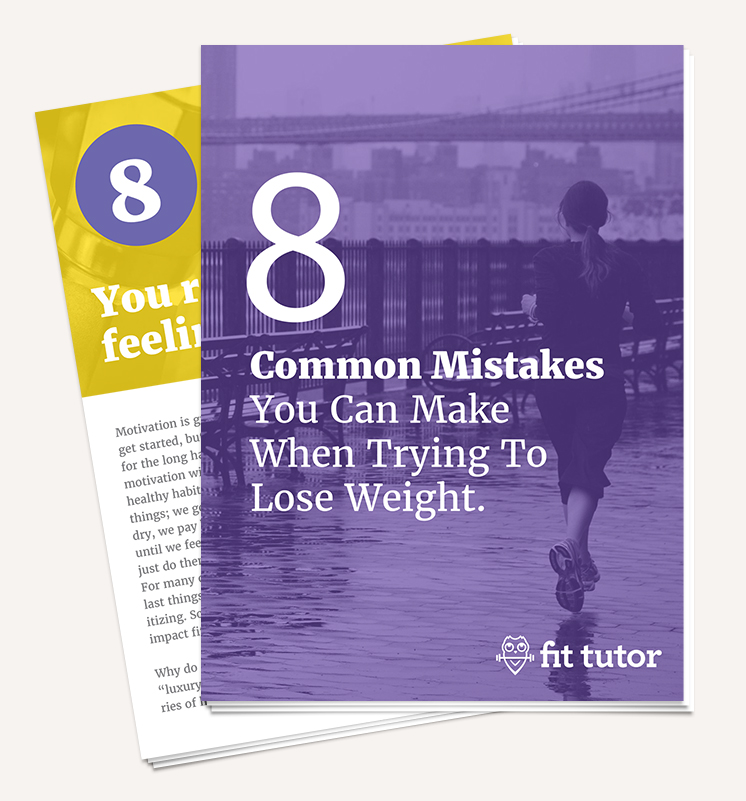It All Started with this Epiphany
Last summer I had the amazing experience of going back home to Indiana to play in an alumni volleyball game with my former teammates. In an attempt to relive my glory days, I came home with lots of bruises, swollen knees, and a wrist that was barely functioning.
You guys, I felt so old.
Fast forward a few months and my wrist was still hurting. Fearing it was fractured, I went to the doctor for X-Rays. I left the appointment with little answers for my pain, but a prescription for something totally unrelated, so I headed to the pharmacy.
Like all good pharmacies, ours is right next to a McDonald’s. I decided that it was necessary to treat myself to a hot fudge sundae.
I had earned it.
Adulting is hard.
That’s when it hit me: My reward system needed an overhaul. What had I done to deserve these 333 calories and 48g of sugar? I had received news that my bones weren’t broken (yay) and filled a prescription. I was mentally tired and felt I deserved a reward. Mind you, this experience only took an hour.
Talk about a wake up call!
Your Epiphany is Waiting
Does this sound like something you’re guilty of? If you have some gray areas in your reward system for yourself, you’re most likely adding to your waistline, harming your health, and fostering and unhealthy relationship with food. I encourage you to read this article and take the steps needed to evaluate and make changes to improve your health, get a reward system that works, and prevent your reliance on that reward from growing stronger and stronger.
Why You Justify “Deserving” that Cake
There are plenty of reasons we think we “earned” or “deserve” something to justify unhealthy behavior. I’ll talk mostly about food and drink rewards, but this can be applied to any unhealthy habit.
Your Prefrontal Cortex is Tired
News flash! Your prefrontal cortex becomes taxed when we make too many decisions. After deciding small things all. day. long, no wonder it feels deserving of a sugar rush or lovely cocktail after doing something easy or mundane. We have a limited capacity to focus, exhibit self-control, and make decisions. We can easily tax our brain’s energy in this area when we make too many decisions.
We think about what to wear, what to eat, make decisions while driving, how to word our instagram post, whether or not we should get in a political debate on facebook, all while juggling our to-do list items that haven’t been recorded yet. This isn’t even including the hundreds of decisions made while working, parenting, or just interacting with people! It makes sense our brains are crying out for a reward.
BF Skinner Was Right
Over time, whether through intentional rewards or just associations, your brain has made the connection between these foods (or behaviors) and calmness, happiness, relief, etc. We begin to feel entitled to them when we experience discomfort. When you’re stressed or exhausted, your brain remembers the rush of eating that pint of ice cream, how calming that glass of wine was, or how comforting macaroni and cheese feels. It will encourage you to choose something that will bring back those good feelings.
Before you cry “my brain made me do it”: If Skinner can train these badass pigeons to play ping pong, then I know your much-more-powerful brain can be taught new, healthier associations. Your reward system can be revamped: dare to believe you can crave an apple when you’re stressed!!
You’re Not Checking Yo Self Before Wrecking Yo Self
The problems are: we’ve lost our discernment, we’re mentally tired, and we’ve become addicted to temporary relief. It’s so easy to fall into the “I deserve this” or “I’ve earned this” trap because those associations are strong, and perhaps we’re too tired to fight them or realize we’ve “earned” a cookie containing 36g of sugar for taking out the trash.
This is something that needs revisited and reevaluated frequently! It’s easy and common to slip into unhealthy habits without our awareness. And it’s OK if you find yourself in a hot mess… you can’t do anything about it unless you realize it, so consider yourself on the path to victory.
I work with women all of the time who tell me they eat great but don’t know why they aren’t losing weight. Often times they’ve picked up habits one by one over a period of time that helped them pack on the pounds. They’ve grown attached to them (“that’s my one vice”), or don’t want to give them up because they “earned” them. It’s not easy to do, but it’s worth it for your health, waistline, and willpower! Check your rewards system!

Step 1: Recognize the Problem. Step 2 is…
So now that we’ve recognized we didn’t necessarily earn that bottle of wine after folding the laundry, what’s the next step?
Setting Boundaries
Take a step back, gain some perspective, and set up healthy boundaries.
I’m not fully on board with food being a reward, but it tastes good and if I consider it a splurge, why can’t I splurge after ______ happens? If this is a messy situation for you*, instead of setting boundaries for food rewards, maybe you should be listing non-food rewards– and that’s OK! :)
Determine, perhaps with an accountability partner, what constitutes as a day or event worthy of a 500+ calorie splurge (AKA: undoing your hard work from 3 days at the gym). Getting a prescription filled was not worthy of setting my body up for metabolic syndrome; but maybe the day you return a box of your ex’s belongings is… perhaps a day from hell at the office is worth a glass or two of cab on a Tuesday, but the fact that “it is Tuesday” is not. You get the idea.
Set up some boundaries for your normal triggers, and try establishing a scale of 1-10. For example: 1-5= suck it up, go exercise. A 6-8 is a smaller splurge, like one glass of wine, one dark chocolate bar, or a controlled portion of pasta. 9-10 is a few slices of pizza or a pint of Tonight Dough- there should be a monthly limit on how many 9-10’s you get, though ;)

And don’t leave out the regret factor. If you constantly feel guilty and regretful from these “rewards,” then find a replacement. How about Halo Top Ice Cream, some fruit and Greek Yogurt, Rutabaga Fries, or a banana and peanut butter? My go-to is a chocolate protein shake!
Counting to 10
You don’t have to count to 10 necessarily, but don’t throw you purse down and march immediately to the fridge after a taxing event. Take a deep breath and work to change your thoughts about the situation before you do anything.
There’s a HUGE difference between enjoying a glass of wine because you like it and needing it because your co-worker is a wang.
By giving yourself time to calm down and let the strong emotions subside, you can later enjoy what you wanted without it having control over you. Or skip it entirely and be filled with accomplishment! Maybe after waiting and taking a deep breath, you will realize your brain is just tired, and this action is not deserving of a treat. Your portions, mental state, and relationship with food will be improved.
Working on Changing Your Perspective
Friends, I know “work” is such a 4-letter word- especially when we’ve already identified that this is happening because we’re exhausted! But I believe this is huge in getting to the root of the problem– and helping you lose weight and improve your health.
Change how you relate to the stimulus that’s causing you to want to dive head first into a “well-deserved” bowl of pasta. Three different studies demonstrated that people who thought of exercise as work instead of fun or enjoyable consumed more calories after as a reward or compensation for their effort.
Just changing how you think about exercise can help you get better results and not feel the need to eat that “earned” candy bar after. Wow. Our minds are so powerful. If you do not like something, change your mind about it. Dr. Caroline Leaf says “your brain controls your body, but your mind controls your brain.” Your mind is powerful enough to not let an attitude hinder your weight loss- you have the power to change your mind!
Identify your triggers. Practice putting a positive spin on the situation. Tell yourself you deserve to put your feet up after that long day or to sweat your stress out, not that you deserve a plate of cheese fries.
You have the capability of changing how you think about and relate to both the trigger and the reward and create a healthier environment!
Simplifying Your Life
If your brain is tired from making too many decisions, maybe it’s time to look at your life and figure out how you can simplify things. There are lots of little changes you can make to your day to prevent decision fatigue! Here are a few ideas
- Attending to your wardrobe can limit the decisions you make each day and will have a big impact on your life
- even laying out clothes the night before can save time and energy
- Decluttering your house can give you a greater sense of peace and feeling put together
- less stuff to manage= less decisions
- Create a one-month meal plan and stick to it. Or get a meal or recipe delivery service. Don’t waste your brain-power on what to eat or *if* you’re going to eat healthy after a long day. Decide beforehand!
- and pack your lunch the night before
- Setting boundaries for your time, allowing yourself to rest, and not going-going-going constantly can help recharge your prefrontal cortex
- Save social media time for after-work hours
And last but not least: cut unnecessary things out of your life. There’s a season for everything; maybe this isn’t the season for certain activities- yours or your kids’. Having a full plate (and a lot of possessions) doesn’t equal success, and it’s okay to save certain activities for a later season. Your sanity (and breaking your addiction to greasy fast food) may depend on it!
Minimizing distractions and getting rid of unnecessary decisions can help you have energy after a normal chore or conversation.

Finding Accountability
If you’ve read my blog before, you know I think accountability is life, the rest is just details. I stand by this decision.
If you continually find yourself swinging through the drive-thru at the onset of any stress or challenging task, accountability might help. Having someone to report to [I know you had a stressful day- how are you feeling? What’s the plan?], confer with [I know this is hard, but I think a bubble bath will help you feel better than that bag of chips], and help you face consequences if needed can be crucial to your success.
Oh, by the way, I do this for a living if you think that might help you!
Gettin’ Practical Wit It
Here are some practical things you can add to your arsenal if you think they’d work for you! I obviously find 90’s music references necessary when discussing important topics. Thanks for agreeing! ;)
- Don’t have junk food in the house. Make yourself go get it. Or make it.
- Set a 5 minute timer that you have to sit through before you open the cookies.
- Exercise for stress relief or do an easy yoga stretching sequence after a taxing chore.
- Find non-food rewards, like Pinterest, baths, pedis, catching up with a friend, working on your hobby, etc.
- Text your accountability partner and get the OK before you give in.
- Check this with your 1-10 scale… maybe no “reward” is in order.
- Go through a mindfulness session before any decision is made.
I’ve trained myself to think a cup of coffee and slippers is a great reward. Same for a chocolate protein shake. If I give in to a glass of weekday wine, I only get 1 (reasonably sized!) glass. Think of what might work for you- your triggers, your personality, your goals, etc. Decide beforehand what you will do before you “reward” yourself or give in to stress eating! In the moment you will usually make a poor decision.
Final Thoughts and a Fist Bump
Friend, you’re a champ for even reading a blog about this. This can be tough, and as a nutrition coach I see the claws come out when I mention someone’s vice or guilty pleasure might be part of the problem, not the cure. We’re emotional beings, and this attachment to food is normal. I’m a firm believer in stepping back and making sure nothing has control over you– no, not even beloved coffee– so I try re-evaluate my relationship with food religiously.
It’s worth it. You’ll be happier, more at peace, more confident, experience less guilt, and be better equipped to handle those stressful days.
If you realize you have a lot to work on, let me assure you you’re not alone, and being mad at yourself doesn’t make anything better. Here are some of my confessions. Ever since I had that epiphany, I’ve caught myself thinking I’m deserving of unhealthy food rewards for the following things:
- making a phone call (it’s 2017. Why are we still doing this!?)
- scrubbing the shower
- having a busy week
- getting up early
- eating healthily (ummm…?)
- it being Wednesday. Wednesday’s are long days for the Lamberts
- cooking dinner
- having patience with a challenging person
- being tired
- having a good attitude
What are some of your gray-area rewarded behaviors? Seriously, once the lights come on you will notice you do this way more than you think!
Getting It Together
If you’re looking to make healthier choices, like eating better and exercising, check out The Fit Tutor!
Check out our membership levels here:
Best of luck, friends!
*Disclaimer on Food Addiction and Eating Disorders:
Friend, if you have a serious food addiction or an eating disorder, I encourage you to see a counselor and/or join a support group. My suggestions were not intended to treat any disorder, but help the average person with an unhealthy rewards system. If yours extends past this, please seek help! There is no shame, no embarrassment, and no failure in taking care of this problem :)


Comments are closed.